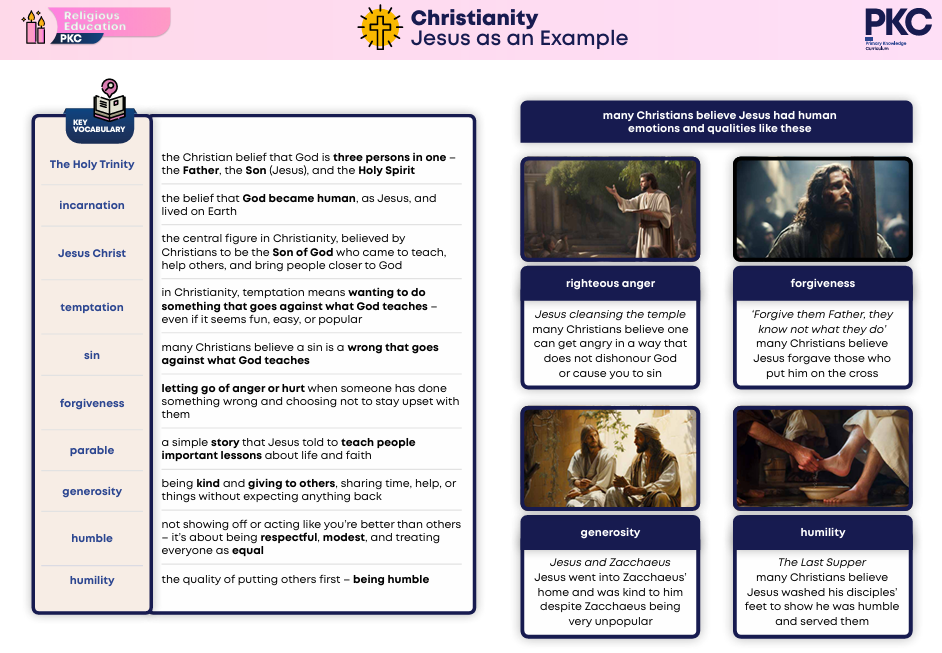Spring 2
Year 3 and 4 – Christianity
Key end points for this Christianity unit on The Holy Trinity:
- Christianity is a monotheistic religion, meaning belief in one God.
- Practising Christians believe God exists in three ways – the father, the son and the Holy Spirit.
- The three ways Christians believe God exists are known as ‘The Holy Trinity.’
- Many Christians believe in God’s kindness, called grace.
- The Holy Spirit is often represented with symbols such as a dove.
- Practising Christians believe Jesus Christ is the incarnation of God on Earth.
- Many practising Christians believe God chose to reveal himself as a human being to spread his teachings.
This unit focusses on a key concept in Christianity: the Trinity. Christians believe that God is one, but is revealed in three distinct forms—God the Father, God the Son (Jesus), and God the Holy Spirit.
Year 5 and 6

Key end points for this Christianity unit on Jesus as an example:
- Practising Christians believe in the Holy Trinity God – the idea that God is represented in three forms.
- Jesus is viewed as the incarnation of God on earth given as a sacrifice to save the sins of humanity in Christianity.
- God is viewed as forgiving for many Christians.
- Jesus set an example of how Christians should live their lives through forgiveness, generosity and humility.
This unit explores a central concept in Christianity—Jesus as the most significant and respected human figure. Building on the Year 3 unit Jesus as an Inspiration, where children learnt about the Trinity (One God in three forms), this unit deepens their understanding of Jesus as God in human form.
